The Second World War, Volume 1: The Gathering Storm
£16.60£18.00 (-8%)
Winston Churchill’s six-volume history of the Second World War.
Read more
Additional information
| Publisher | Penguin Classics (5 May 2005) |
|---|---|
| Language | English |
| Paperback | 752 pages |
| ISBN-10 | 0141441720 |
| ISBN-13 | 978-0141441726 |
| Dimensions | 12.9 x 3.1 x 19.8 cm |

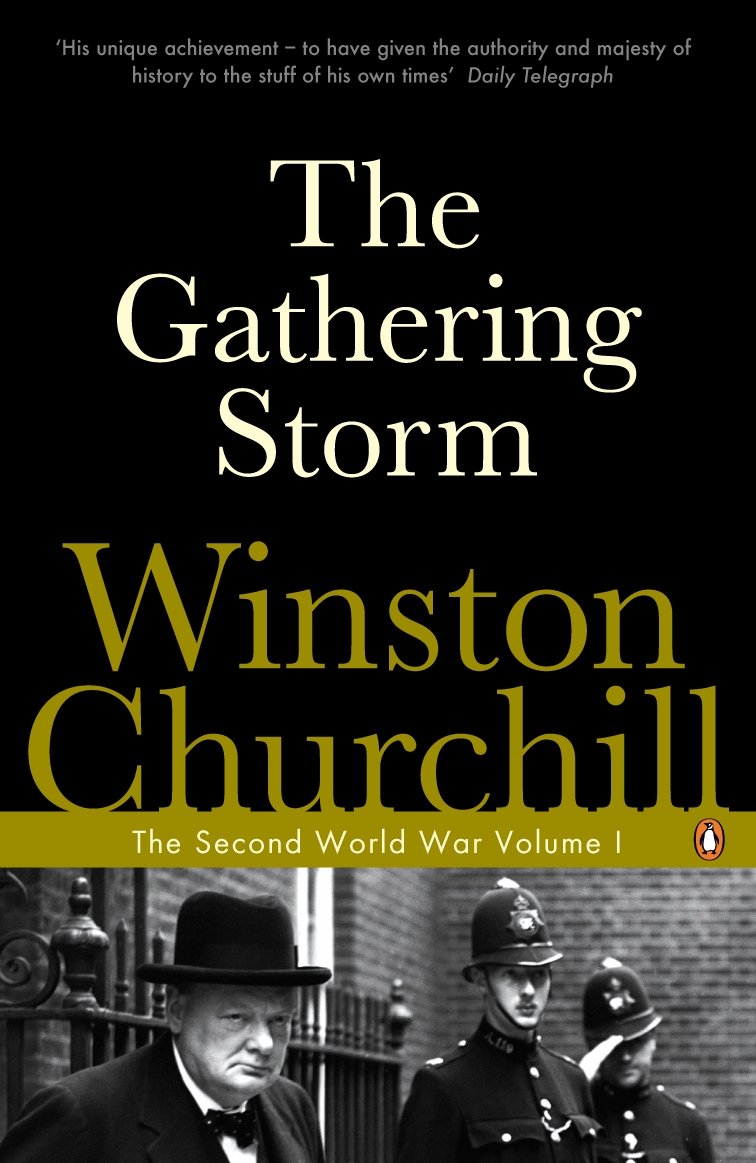
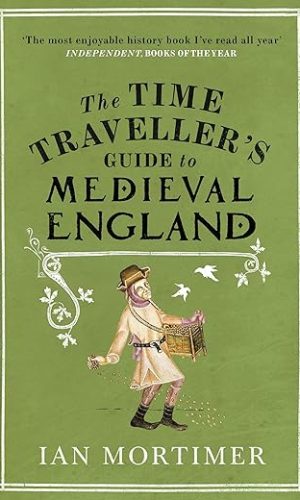
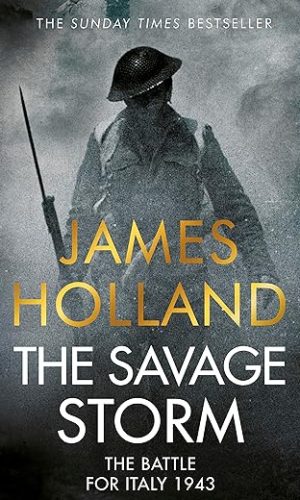
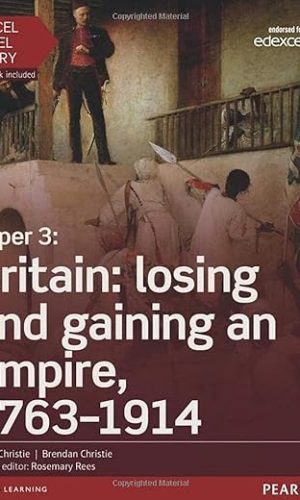

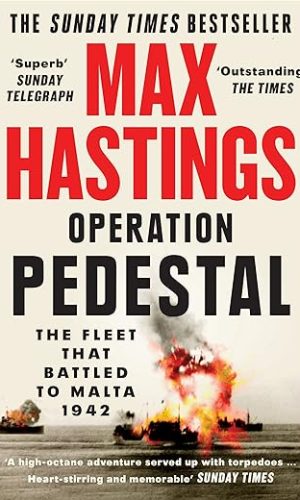

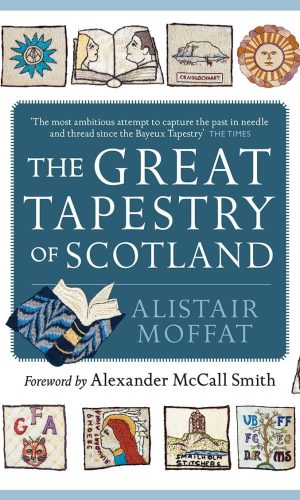
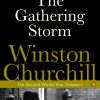
by G. Mutlow
Hilightlights how inaction and errors by well meaning people results in catastrophic war and suffering. Clearly had just some of the preparation called for been taken many lives could have been saved. The fact that these lessons from history are already forgotten is worrying for our future.
by FictionFan
The first book in Churchill’s massive six-volume history of the Second World War, this covers the period from the signing of the Treaty of Versailles in 1919 to the day when Churchill became Prime Minister in May 1940. The series, among his other writings, won Churchill the Nobel Prize for Literature, although the liberal intellectual snobberati like to suggest that that was out of gratitude for his wartime leadership rather than for its literary merits. The snobberati, as usual, are wrong. This is a superbly written account of the period from one man’s viewpoint – that man happening to be one of the handful of important men who decided the fate of the world for the second half of the twentieth century at least.
Despite recent attempts at revisionist history, it is still, I think, generally accepted that the conditions that allowed for the rise of Hitler and the Nazis were seeded in the Treaty of Versailles that formally ended the First World War, and then fertilized by the failures of the Allies, mainly the US, France and Britain, to act at an early stage to prevent Germany from re-arming. Exhausted from WW1 and with no appetite for further war, appeasement seemed the easier option, and the old men who ran the world dithered as Hitler began to forge a massive fighting machine and revived German pride and resentment at their treatment by the victors of the 1914-18 war. Churchill was the main opponent of appeasement, arguing consistently that Germany must be dealt with before they became too powerful for the Allies to control. Alas! How different history may have been if only his views had prevailed in the mid-1930s.
Of course, in this book Churchill shows that Churchill thinks Churchill was right all along, but I tend to agree with him about that so his bias in his own favour didn’t become an issue. He is remarkably personally generous to those individuals with whom he disagreed, even as he condemns their weakness and failure to act. He tries to give their side of the arguments as fairly as he can, considering that they were proved wrong time and time again.
But he is pretty brutal about failures of the national policies of the WW1 allies, especially the US’s self-interested and isolationist position of neutrality. He points out that the Allies reluctantly agreed to Wilson’s League of Nations after WW1, only for the American government then to refuse to ratify it, immediately making it a toothless tiger. He talks about the damage done, economically and politically, by the reparations forced on Germany, and how the US was unwilling to cancel debt to allow the German economy to recover, not to mention the economies of America’s erstwhile allies.
But France and Britain come in for plenty of criticism too, for continuing to attempt to mollify and compromise with Hitler’s Germany long after, in Churchill’s opinion, such attempts were obviously dangerous. He talks in depth about Germany’s open and secret build-up of their army, naval power and, most frighteningly, air force, while Britain and France lagged behind, hoping that somehow war could be avoided. He barely hides his disgust at the Munich agreement and the betrayal of the Allies’ commitment to Czechoslovakia. He shows how he argued forcefully for the Allies to take a military stand before Germany overtook France and Britain in terms of military force, but to no avail. And therefore, when even the appeasers finally agreed that Germany must be stopped, the Germans had built up a huge military advantage; and the British, quickly left alone as one ally, France, was defeated, and the other, the US, sat on its haunches doing nothing, had to try to fend off an invasion long enough to allow for a massive expansion in manpower, munitions, and the vital air power – defensive and offensive – that had been allowed to fall so badly behind.
Although the story is told from a personal perspective, with Churchill more than most the personal is political, and so this reads like a formal history far more than a personal memoir. Churchill claims, and I have no reason to doubt him, that he asked other people to rigorously check the facts in the book, so that there is a solid historical foundation below the upper layer of Churchill’s own opinion. One sees his mastery over detail, his ability to look at the full chessboard of war, his willingness to throw away a pawn or two to capture the queen, his courage to be open about the dangers ahead, his inspirational belief in Britain’s eventual ability to prevail which meant so much to the national psyche during the war’s darkest days. We see him pull all the political levers at his command, all the contacts and loyalties he had built up over his already long lifetime in the spotlight on the world’s stage, to bring people and nations round to his views – a long task and often seemingly futile, but he never weakened or turned away, never decided to let his reputation rest on his past achievements as many men of his age may have done. Was he perfect? Absolutely not. Opinionated, demanding, a risk taker, an imperialist to the core – I imagine the people around him found him maddening and exhausting. But he also commanded deep personal loyalty and respect from those who worked closely with him, and was admired and increasingly revered by a large majority of the general public for his steadfastness and patriotism in these early days of the war. He was the right man at the right time, and how often does that happen?
I really thought this might be a turgid read, but it’s actually a first-rate history with just enough of the personal to bring out the emotional drama of war. I also realised while reading it how influential it must have been on the early interpretations of the history of the period, since it chimed in almost every particular with what I was taught about the war in school in the 1970s. I will certainly go on to read the other five volumes in the series.
by Anthony Campbell
This is the first volume of Churchill’s six-volume memoir of the Second World War. It is in two parts. Book I describes events in the years preceding the outbreak of war, and Book II deals with the start of the war. This review is of Book I.
The central idea that runs throughout the book is that the war was avoidable. It happened because we—meaning the victors in the First World War, especially Britain—believed what we wanted to believe rather than what was happening. Time and again opportunities were lost. The main reason for this was the understandable wish for peace, which was what led to the establishment of the League of Nations. Germany was supposed to be disarmed, but so too were the victorious nations. During what Churchill calls the Locust Years (1931–1935) British security was neglected shamefully, principally by the Conservatives but also by Labour and the Liberals. The result was “a picture of British fatuity and fecklessness which, though devoid of guile, was not devoid of guilt, and though free from wickedness or evil design, played a definite part in the unleashing upon the world of horrors and miseries which, even as far as they have unfolded, are already beyond comparison in human experience”.
Churchill traces Hitler’s seemingly inexorable rise to power after 1933 and shows time and again how he thinks this could have been at least checked for a time and possibly completely prevented. The German invasions of the Ruhr, Austria, and Czechoslovakia were all gambles; in all of them resolute action by Britain and France could easily have called Hitler’s bluff, but nothing was done. I was familiar with this in outline but there were many surprises. For example, it seems that the German generals were so appalled by the risks that Hitler was running in his plan to invade Czechoslovakia that they were plotting to arrest him.
I was also surprised at the complexities of the relationship between Mussolini and Hitler; the two dictators were initially not as cooperative or friendly to each other as they became later. And I hadn’t realised how close Russia had come in 1938 to forming an alliance with Britain and France against Germany; this might have happened if the Western powers had been less lukewarm to the idea, although Poland and the Baltic states were also unwilling to allow Russian troops to traverse their territories
Statesman are not called upon to settle easy questions. These often settle themselves. It is where the balance quivers and the proportions are veiled in mist that the opportunity for world-saving decisions presents itself. Having got ourselves into this awful plight of 1939, it was vital to grasp the larger hope.
Throughout the period he describes in Book I Churchill was a Member of Parliament but not a minister, so his role was that of a spectator and adviser but not an actor. That was soon to change. We leave him in his home at Chartwell, accompanied by a retired Scotland Yard detective; they are both armed and taking it in turns to sleep, in case one of Hitler’s Nazis, of whom there were known to be twenty thousand in Britain, should come to assassinate him.
Not the least remarkable thing about this book is its sheer readability. Before starting on it I had expected to find it rather hard going, but quite the opposite. I usually have two or three books on the go at any one time and tend to alternate between them according to my mood, I soon found myself returning to this one in preference to anything else, as I might to a thriller—which, in a sense, it is.